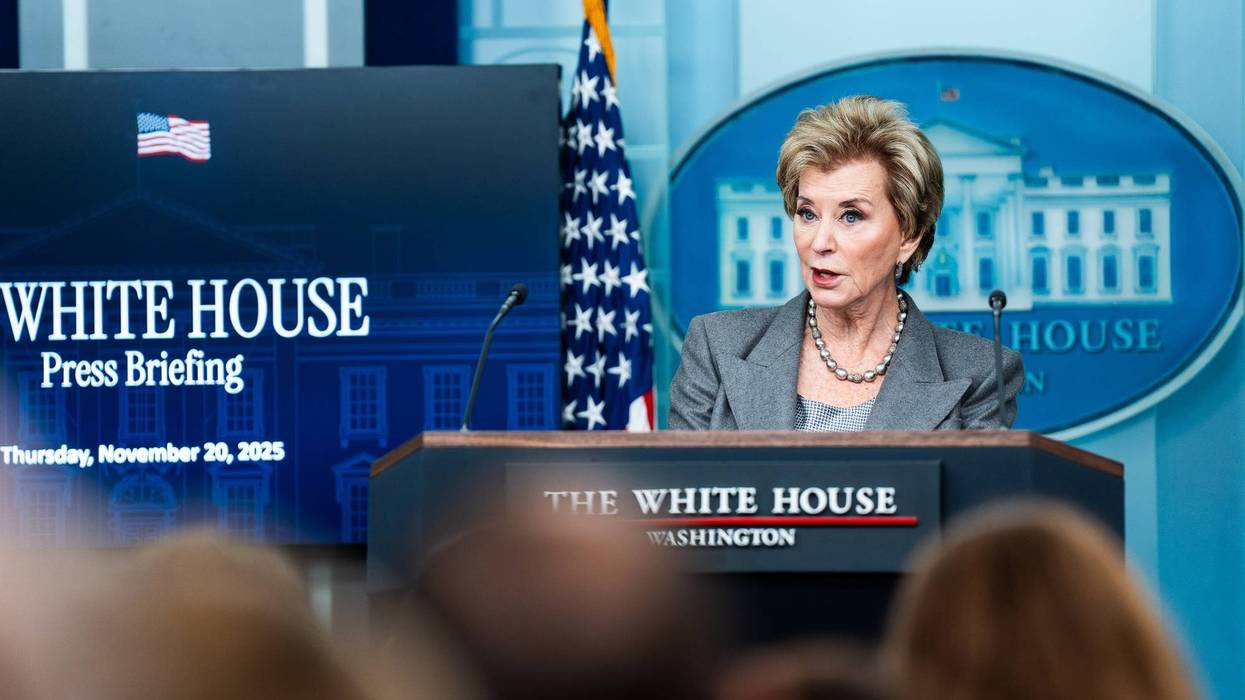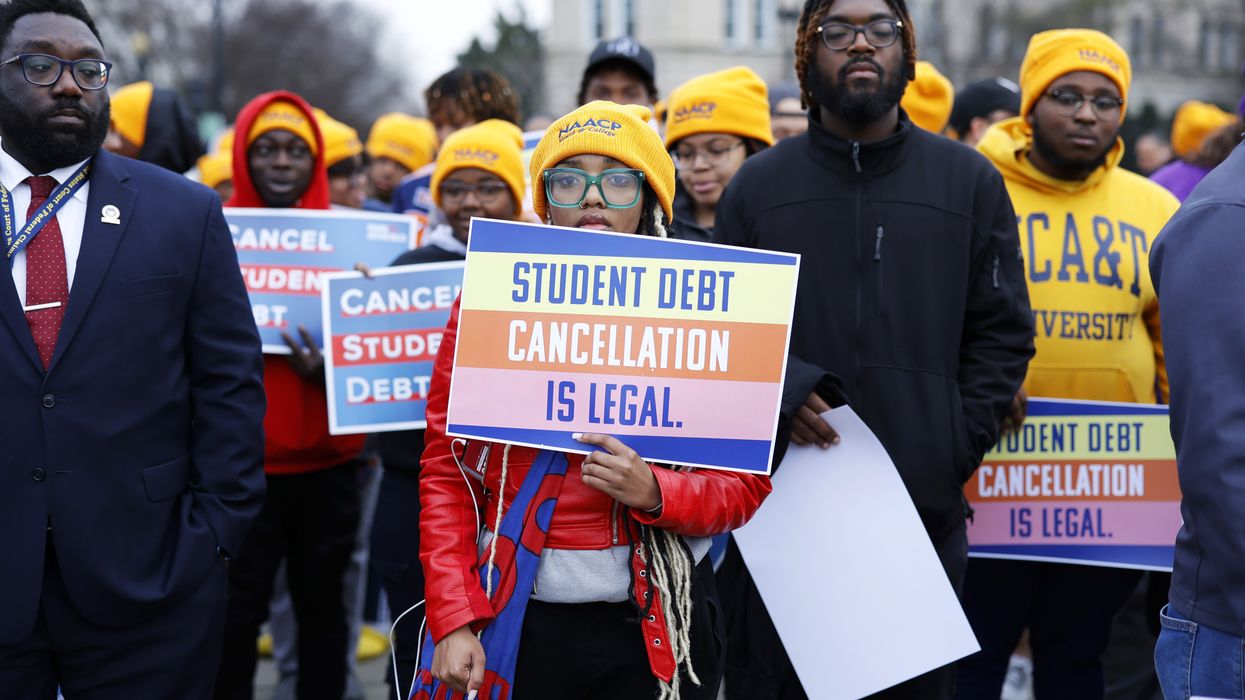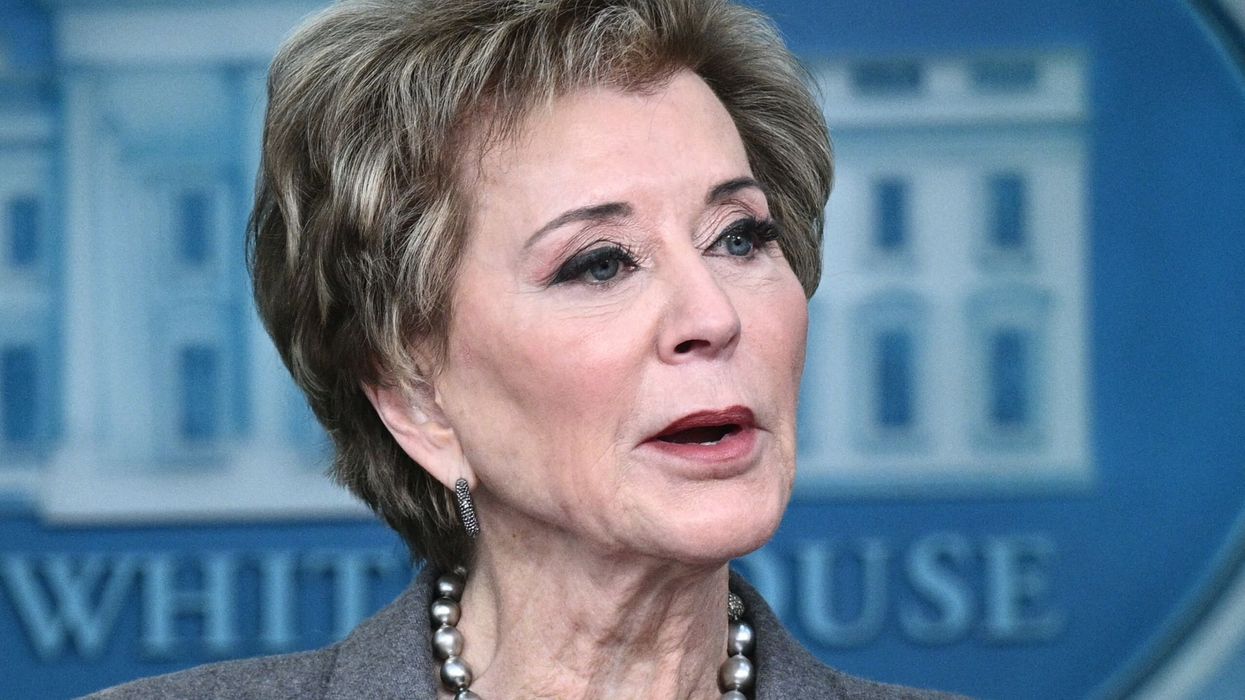Facing Backlash, McMahon Pauses 'Reckless' Plan to Garnish Wages of Student Borrowers
Advocates warned wage garnishment "would have risked pushing nearly 9 million defaulted borrowers even further into debt."
Billionaire US Education Secretary Linda McMahon has temporarily suspended the Trump administration's plan to resume garnishing the wages of defaulted student loan borrowers, a reversal that came after advocates warned the pay seizures would have had devastating economic consequences for people across the country amid a worsening cost-of-living crisis.
McMahon, who is actively working to dismantle her department from within, told reporters earlier this week that wage garnishment efforts have "been put on pause for a bit," without providing specifics. The Trump administration, which last summer ended a pause on student loan repayments that had been in place since the start of the Covid-19 pandemic, was reportedly set to begin notifying defaulted borrowers of plans to withhold a portion of their wages last week.
Aissa Canchola Bañez, policy director at the advocacy group Protect Borrowers, said in a statement Friday that "after months of pressure and countless horror stories from borrowers, the Trump administration says it has abandoned plans to snatch working people’s hard-earned money directly from their paychecks simply for falling behind on their student loans."
"Amidst the growing affordability crisis, the administration’s plans would have been economically reckless and would have risked pushing nearly 9 million defaulted borrowers even further into debt," Canchola Bañez added. "Earlier this month, a coalition of partners sent an urgent letter to ED urging them to do just this. We are pleased to see they have heeded our calls.”
That letter—sent on January 7 by Protect Borrowers, the American Federation of Teachers, Debt Collective, and other groups—called the administration's earlier decision to resume wage garnishment "calloused and unnecessary," warning that it came at a time when "struggling borrowers have been forced to wait amidst a nearly 1 million application backlog to enroll in an Income-Driven Repayment (IDR) plan, and as mass layoffs at the department have made it even harder for borrowers to get help with their student loans or if they are experiencing issues with their student loan servicer."
According to an analysis by Protect Borrowers, 3.6 million new student loan borrowers fell into default during the first year of President Donald Trump's second term in the White House. That's one new default every nine seconds.
"Nearly two-thirds of the borrowers who defaulted during the Trump administration—more than 2.6 million people—live in states that President Trump won in the 2024 election," the analysis found.
Under federal law, the Education Department can withhold up to 15% of a borrower's after-tax income to pay down defaulted debt. The Trump administration has already begun seizing income tax refunds from student borrowers in default.
The National Consumer Law Center (NCLC) noted in a Thursday blog post that "if you have received a notice of proposed garnishment, there are steps you can take to object to the garnishment notice and request a hearing, which is typically conducted through a written review of your objections."
"You must act quickly to avoid a potential garnishment order from being sent to your employer," the group stressed.


